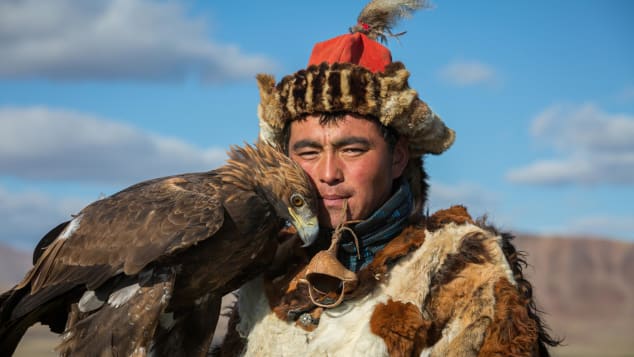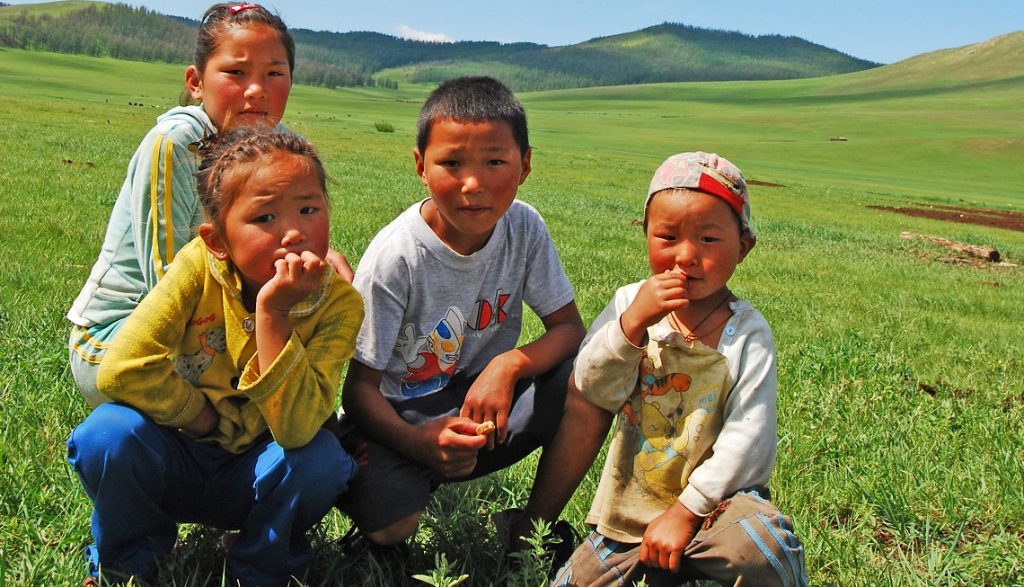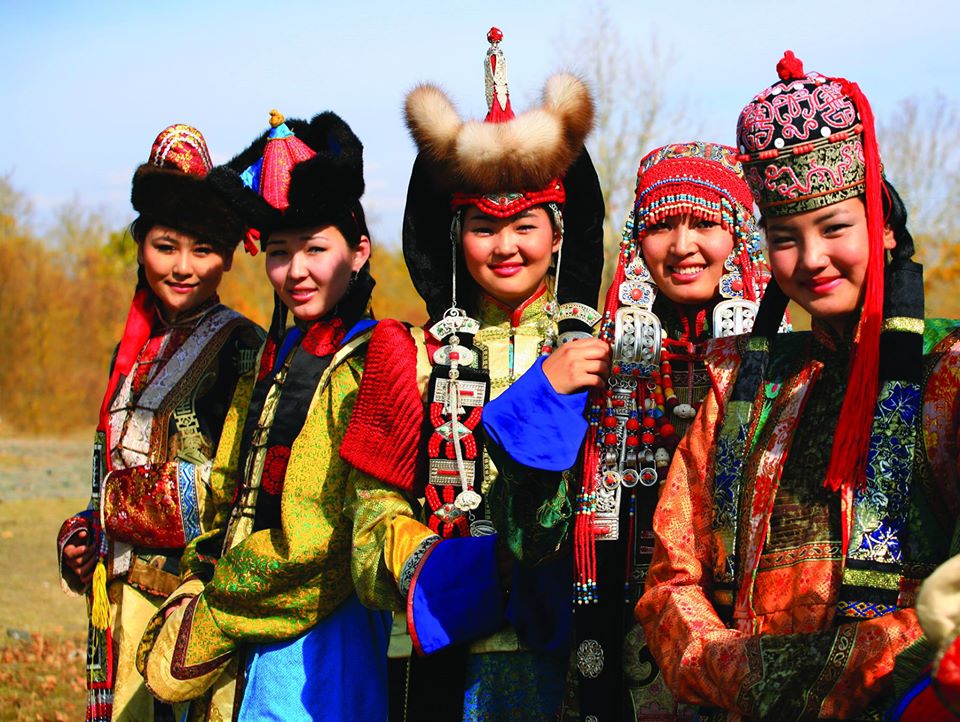Events
| Name | organizer | Where |
|---|---|---|
| MBCC “Doing Business with Mongolia seminar and Christmas Receptiom” Dec 10. 2025 London UK | MBCCI | London UK Goodman LLC |
NEWS

Tavantolgoi-Gashuunsukhait and Tavantolgoi-Zuunbayan railroads to be connected www.montsame.mn
Ulaanbaatar /MONTSAME/ At its regular meeting on September 23, the Cabinet authorized Tavantolgoi Railway company to construct the basic track structure of a 22 km railroad connecting Tavantolgoi Gashuusukhait and Tavantolgoi-Zuunbayan railroads and assigned relevant Ministers to develop the engineering design, carry out environmental impact assessment, and begin the project within this year. The necessary estimated funding will be provided by Erdenes-Tavantolgoi company.
It is estimated that the exploitation of coal, copper, coal, tungsten, zinc and fluorspar deposits of Tavantolgoi, Tsagaansuvarga, Aduunchuluun, Chandgana, Talbulag, and Khuut will increase annual exports to around 50 million tons and rail freight volume 3.5-fold.
The Cabinet also instructed relevant Ministers to approve a plan coordinating Tavantolgoi coal deposit mining and infrastructure development projects and programs and to oversee its implementation.

81.3 thousand tons of hay prepared at national level www.montsame.mn
Ulaanbaatar /MONTSAME/ According to a report on progress of harvesting, 81.3 thousand tons of hay has been prepared on the national level as of the beginning of this month and it is a decreased performance by 167.5 thousand tons or 67.3 percent compared to the same period of previous year, reports the National Statistics Office.
Furthermore, 12.5 thousand tons of vegetable, 8000 tons of potatoes have been harvested and 0.2 thousand tons of fodder has been prepared. The amount of manually prepared fodder went down by 84.7 percent or 1000 tons, vegetable by 10.6 percent or 1.5 thousand tons and potatoes by 20.4 percent or 2000 tons respectively compared to the same period of last year.
The amount of harvested potatoes increased by 5.0-236.2 tons in Selenge, Khuvsgul, Dornod, Orkhon, Bayankhongor, Sukhbaatar and Gobisumber aimags compared to the same period of last year while its amount decreased by 1.0-1063.0 tons in Ulaanbaatar city and other aimags.

Gold windfall heading for investors with miners vowing restraint www.bloomberg.com
Gold companies are vowing to give investors a greater share of the windfall from surging prices, without losing the fiscal discipline that’s returning to the industry.
Even as bullion bounces around near record heights, helping lift miners’ cash flow and share prices, the mood — at least virtually — at the Denver Gold Group’s annual Americas conference this week was conspicuously cautious. The tone was exemplified by executives including Agnico Eagle Mines Ltd. Chief Executive Officer Sean Boyd, who put it this way: “It’s not party time.”
“It’s not the time to blow up capex budgets and introduce risk,” Boyd said in a presentation. “Our view is to keep the risks low, keep the share count down, and focus on taking advantage of the current gold price in generating that free cash flow and returning it to shareholders.”
The gold industry descended into a dark phase about a decade ago after disastrous acquisitions and over-expansion bloated balance sheets and sent generalist investors scurrying elsewhere. While the sector has since restored a large measure of fiscal discipline, there are lingering concerns that the restraint could quickly dissipate if gold prices remain high.
Still stinging
The memory of deals gone bad in the last cycle still lingers in the minds of many investors. Those include Barrick Gold Corp.’s 2011 multibillion-dollar acquisition of copper producer Equinox Minerals Ltd. Barrick saw debt swell and took a $3 billion writedown on the Zambian mine it bought after the top-of-the-cycle purchase.
Big gold producers have indicated at the Denver Gold show this year that they remember the lessons of the downturn, said Rick Rule, CEO of Sprott U.S. Holdings.
“The last decade was punctuated by a lot of idiocy, and I think that both investors and managers at the biggest companies have come to understand that,” Rule said Tuesday in a phone interview. For a time at least, he expects “new investments in terms of putting a project in production or doing acquisitions will be measured against returns of capital to shareholders.”
Amid the rising gold prices, Barrick CEO Mark Bristow said his company is considering a more formal structure for its dividend policy. The timing will depend on its net-cash position and how the global pandemic develops, he said in a live presentation. He also said the global miner intends to keep a minimum cash balance.
“You don’t want to be held ransom by the capital markets,” Bristow said. “So you need to be able to manage crises in the full gold-price cycle.”
To be sure, different companies in the sector will have different priorities for the free cash flow that’s expected to pour in. For Franco-Nevada Corp., a royalty and streaming company, the plan is to spend the bulk of the cash to acquire more deals, CEO Paul Brink said in a Denver presentation. “And then obviously the second use for it is paying dividends.”
Whatever Franco does, though, the question is by all vantage points a pleasant one. “That’s always a high-class problem: to discuss what to do with your cash,” Brink said with a smile.
(By Steven Frank, with assistance from Yvonne Yue Li)

Musk: $25,000 Tesla ready "in about three years" www.bbc.com
Tesla founder Elon Musk has announced technology that he says will make Tesla batteries cheaper and more powerful.
At a live presentation that Mr Musk labelled 'Battery Day' he also teased the possibility of a $25,000 (£19,600), fully-autonomous Tesla "in about three years time".
"This has always been our dream to make an affordable electric car" he said.
But the news didn't excite investors and $50bn was wiped off its stock market value.
The main announcement was Tesla's new larger cylindrical cells. It was claimed the new batteries will provide five times more energy, six times more power and 16% greater driving range.
But the technology announced is likely to take years to implement.
Tesla's approach includes integrating the battery so that it forms part of the structure of the vehicle, thereby reducing the effective weight of the battery.
The speech took place in front of 240 shareholders - each sitting in a Tesla Model 3.
Central to cheaper Teslas are innovations in the way the company designs batteries - radically improving their efficiency.
Professor Stanley Whittingham, a member of the National Academy of Engineering, told the BBC that "tackling all the opportunities is high risk, but high pay-off".
"Many of us have suggested the same steps are necessary, but Tesla has the investment and will to make it happen. Not sure anyone else is willing to do this," he said.
Mr Musk also announced that as well as purchasing batteries from Panasonic and LG Chem - Tesla itself would begin to make them.
In April last year Musk himself revealed problems with sourcing Panasonic batteries used in its Model 3 Tesla.
Speaking to the BBC, Casper Rawles, Head of Price Assessments at Benchmark Mineral Intelligence, said scaling up would be "challenging"
"Even with really experienced car manufacturers, we tend to see a very high scrap rate of production in the first couple of years."
He also warned that so much of the content of the battery is expensive metals - "You can only reduce the cost down to a point".
Four consecutive quarters of growth have helped Tesla's share price soar and it is now the most valuable car company in the world.
This is despite criticisms of Elon Musk that some of his technological advances have been exaggerated.
Earlier this month customer group Consumer Reports released a damning report about Tesla's automated driving services. The research concluded that "For now, Full Self-Driving Capability…remains a misnomer."
And in July Mr Musk said Tesla would be able to make its vehicles completely autonomous by the end of this year. The statement was met with scepticism by industry insiders.
Tesla's boss however announced that a 'beta' version of the full Autpilot software would be available "in a month or so".
Musk is no stranger to glitzy and sometimes bizarre public demonstrations.
Earlier this month he unveiled a pig with a coin-sized computer chip in its brain to demonstrate his ambitious plans to create a working brain-to-machine interface.

'The girls go crazy over him': Meet Jenisbek Tserik, Mongolia's most eligible eagle hunter www.cnn.com
(CNN) — "Look over there. See that man coming this way?" asks Timur. "He's so good looking."
Galloping towards us on a stout Mongolian steed is the nomad's version of Brad Pitt returning home in "Legends of the Fall." Bundled inside a pinto jacket above richly embroidered trousers, he certainly catches the eye. A fox fur hat warms his head, and perched calmly on his right forearm is a golden eagle that's not merely a prop for a cheesy cologne advertisement.
"Look at his eyebrows and his cheekbones," continues our local guide. "And look at how big and strong he is. The girls go crazy over him."
"It's true," says Timur's wife, Bata, blushing slightly. "If I was to compare him with Timur just on looks, of course I would choose him."
Upon closer inspection, the intruder's weathered face betrays a life lived outdoors. But his jaw is certainly chiseled and his natural squint reminds me of a youthful Clint Eastwood as he gazes off into the distance.
Arguably more impressive though is his stature, which I only begin to appreciate once he stands beside four other berkutchi, or eagle hunters, who have assembled in front of us for a scheduled photo shoot and interview session. He's close to a head taller, with broad, square shoulders and muscular limbs that are further exaggerated by his bulky attire.
His name is Jenisbek Tserik, an appellation that means "steel warrior" -- an apt description given his achievements. A master horseman, he's also a serial winner of tug-of-war competitions pitting two combatants wrestling a goat carcass.
So adept is Jenisbek that he has been flown to Dubai to compete in exhibition events. For a semi-nomadic Kazakh living in Mongolia's remote, westernmost province of Bayan-Ölgii, any trip abroad would be like visiting another planet. Glitzy Dubai would be a whole different universe.
Aged 26, Jenisbek tells us he's not married, then jokes that he has five girlfriends, including one in Dubai and another in Kazakhstan, from where 90% of Bayan-Ölgii's resident population originates. I'm unsure if he's serious, but from what Timur and Bata have told me about him, it's not beyond the realms of possibility.
As well as the tug-of-war, Jenisbek is a champion archer, and he's won numerous awards for eagle hunting in Bayan-Ölgii, where the centuries-old pastime is more widespread than anywhere else on the planet.
Eagle hunting can be traced back to a forgotten kingdom in Central Asia, where direct descendants of Genghis Khan settled by the Aral Sea until encroaching Russian Empire forces compelled them to flee to the lawless region of the Altai Mountains in Mongolia.
Then, when the Soviet Union and China established borders either side of them early in the 20th century, the Kazakhs became cut off from their homeland and were unable to return.
They continued to live as semi-nomadic herders in Western Mongolia, where traditional pastimes such as hunting with golden eagles continued, passing from one generation to the next. Since such practices were suppressed in Kazakhstan during Soviet rule, Bayan-Ölgii became the sport's nucleus.
"For a Mongol, it's pride thing to train racehorses. For Kazakhs, their pride is in training eagles to hunt," explains Bata.
You can see it in the way they walk and how they behave. The five berkutchi know they're being watched and they play up to it, puffing their chests out and stiffening their backs whenever a camera lens points their way. Brows furrow and lips purse like they've modeling all their lives.
It's a far cry from how life must have been in this part of the world before tourism impinged following the first Golden Eagle Festival, which was staged outside the provincial capital of Ölgii in 1999. But even now, foreigners are hardly stampeding to get here. When I quiz our local facilitator about numbers visiting the region this season, he replies that there are "many."
"How many?" I ask.
"About 800."
Numbers peak around the timing of the festival in early October, and during the smaller scale Altai Kazakh Eagle Festival, held here in Sagsai two weeks earlier. In each, as many as 100 berkutchi test their skills in events where eagles are expected to catch fox skins being dragged behind horses or in races to scoop up a coin off the ground on horseback.
One flirtatious contest involves a whip-cracking woman chasing after a man who doesn't always try overly hard to escape. I could imagine Jenisbek receiving a disproportionate share of lashings these past few years.
But it's only once the tourists have gone that the eagle hunting season begins. From October to March, hunters head off into the mountains in pairs -- one to flush out their prey, the other to release the eagle from high along a ridgeline. Prize catches includes foxes and hares, whose luxuriant coats make the warmest hats, just like those crowning Jenisbek and his companions.
Hunts can last for days at a time, and training requires patience as the eagles become accustomed to their handlers and develop the required skills. There's no doubt it's a time-consuming passion -- one that would almost certainly cause rifts in Western households.
Has it caused couples to divorce, I ask Timur, when husbands spend more time with their birds than they do with their wife? He shrugs his shoulders.
When every unmarried woman in the valley is lining up for you, like they are for Jenisbek, who needs a wife?

Kindergarten crisis in Mongolia www.news.mn
A total of 309,670 children are expected to be enrolled in kindergartens for the 2020-2021 school year; 23 percent, or 77235 children, are two- year-olds. However, Mongolia does not have enough kindergartens to accept all these children. Therefore, only 17550 of children aged two-years have actually been registered to attend the state-owned kindergartens. In other words, most of these toddlers will be sent to expensive private kindergartens or – more likely – be stuck at home.
Mongolia re-opened all educational institutions from 21 September after the many-month quarantine prevent the spread of coronavirus.

Mongolia reports 313th case of COVID-19 www.akipress.com
The Ministry of Health of Mongolia reported the country's 313th case of Covid-19 infection as of September 22.
453 tests for coronavirus were conducted in the country on September 21, and one person tested positive. The case was imported just like all the previous ones.
Out of total 313 cases, 302 people recovered.
Today 11 patients are receiving treatment from COVID-19 in Mongolia.

‘World Mongolians’ program implementation discussed www.montsame.mn
Ulaanbaatar/MONTSAME/. A regular meeting of the Council responsible for managing and overseeing the implementation of the ‘World Mongolians’ Program approved by the Government of Mongolia was held at the Ministry of Foreign Affairs on September 21.
State Secretary of the Ministry of Foreign Affairs N. Ankhbayar opened the meeting and Acting Director General of the Department of Public Diplomacy and Cultural Cooperation J. Sereejav gave a brief presentation on the activities implemented in 2016-2020 under the ‘Mongolians of the World’ program.
During the meeting, the participants exchanged views on the current implementation of the program and issues to be included in the ‘World Mongolians-II’ comprehensive measures' policy document, which is a continuation of the ‘World Mongolians’ program.
The meeting was attended by representatives of the Ministry of Education and Science, the General Authority for State Registration, the General Agency for Border Protection, Mongolia Immigration Office, the Municipality of Ulaanbaatar, the National Data Center, ‘Overseas Mongolians Council’ NGO, and the ‘United Alumni Council of Mongolia’ NGO.

Russian FM Sergey Lavrov to visit Mongolia again www.news.mn
Russia Foreign Minister Sergey Lavrov has accepted an invitation from his Mongolian counterpart, N.Enkhtaivan, to visit Ulaanbaatar.
“In conclusion, the [Mongolian foreign] minister invited me to visit Ulaanbaatar once again. I will try to make it with pleasure,” Mr Lavrov said at a joint press conference following yesterday’s talks with N.Enkhtaivan. Previously, Sergey Lavrov visited Mongolia in April, 2016.
The Russian diplomat also said that the negotiations confirmed the mutual determination to promote partnership between the two countries in all areas, without exception.
The Mongolian minister, in turn, thanked the Russian side for the friendly reception of the Mongolian delegation and expressed confidence in the further fruitful cooperation between the two countries.
Yesterday, Monday 21 September, the two ministers held talks in Moscow to discuss bilateral, regional and international cooperation, as well as to exchange views on preparations for joint events marking the upcoming celebration of the centenary of the establishment of diplomatic relations between Russia and Mongolia in 2021.

Mongolia constructing Sports Complex for International Youth Games www.news.mn
Mongolia will host the International Youth Green Games in Ulaanbaatar in September, 2021. The main purpose of the games is to introduce through sports the United Nations ‘Sustainable Development Goals’ to the young generation who will lead the future.
To host the games, Mongolia plans to build and reconstruct some buildings and complexes such as the Technical Sports Centre, the Steppe Arena, the Water Sports Centre, the Sports Complex in Yarmag, the Buyant Ukhaa Sports Palace and the Choijin Lama Temple Museum. The Games are expected to take place in 18 locations in Ulaanbaatar.
Covering 10,000 cubic meters, the Sports Complex is under construction. This is a joint cooperation project between private enterprises and government organisations. The sports complex with have a capacity of 60,000 seats will include a fitness club.
- «
- 1
- 2
- 3
- 4
- 5
- 6
- 7
- 8
- 9
- 10
- 11
- 12
- 13
- 14
- 15
- 16
- 17
- 18
- 19
- 20
- 21
- 22
- 23
- 24
- 25
- 26
- 27
- 28
- 29
- 30
- 31
- 32
- 33
- 34
- 35
- 36
- 37
- 38
- 39
- 40
- 41
- 42
- 43
- 44
- 45
- 46
- 47
- 48
- 49
- 50
- 51
- 52
- 53
- 54
- 55
- 56
- 57
- 58
- 59
- 60
- 61
- 62
- 63
- 64
- 65
- 66
- 67
- 68
- 69
- 70
- 71
- 72
- 73
- 74
- 75
- 76
- 77
- 78
- 79
- 80
- 81
- 82
- 83
- 84
- 85
- 86
- 87
- 88
- 89
- 90
- 91
- 92
- 93
- 94
- 95
- 96
- 97
- 98
- 99
- 100
- 101
- 102
- 103
- 104
- 105
- 106
- 107
- 108
- 109
- 110
- 111
- 112
- 113
- 114
- 115
- 116
- 117
- 118
- 119
- 120
- 121
- 122
- 123
- 124
- 125
- 126
- 127
- 128
- 129
- 130
- 131
- 132
- 133
- 134
- 135
- 136
- 137
- 138
- 139
- 140
- 141
- 142
- 143
- 144
- 145
- 146
- 147
- 148
- 149
- 150
- 151
- 152
- 153
- 154
- 155
- 156
- 157
- 158
- 159
- 160
- 161
- 162
- 163
- 164
- 165
- 166
- 167
- 168
- 169
- 170
- 171
- 172
- 173
- 174
- 175
- 176
- 177
- 178
- 179
- 180
- 181
- 182
- 183
- 184
- 185
- 186
- 187
- 188
- 189
- 190
- 191
- 192
- 193
- 194
- 195
- 196
- 197
- 198
- 199
- 200
- 201
- 202
- 203
- 204
- 205
- 206
- 207
- 208
- 209
- 210
- 211
- 212
- 213
- 214
- 215
- 216
- 217
- 218
- 219
- 220
- 221
- 222
- 223
- 224
- 225
- 226
- 227
- 228
- 229
- 230
- 231
- 232
- 233
- 234
- 235
- 236
- 237
- 238
- 239
- 240
- 241
- 242
- 243
- 244
- 245
- 246
- 247
- 248
- 249
- 250
- 251
- 252
- 253
- 254
- 255
- 256
- 257
- 258
- 259
- 260
- 261
- 262
- 263
- 264
- 265
- 266
- 267
- 268
- 269
- 270
- 271
- 272
- 273
- 274
- 275
- 276
- 277
- 278
- 279
- 280
- 281
- 282
- 283
- 284
- 285
- 286
- 287
- 288
- 289
- 290
- 291
- 292
- 293
- 294
- 295
- 296
- 297
- 298
- 299
- 300
- 301
- 302
- 303
- 304
- 305
- 306
- 307
- 308
- 309
- 310
- 311
- 312
- 313
- 314
- 315
- 316
- 317
- 318
- 319
- 320
- 321
- 322
- 323
- 324
- 325
- 326
- 327
- 328
- 329
- 330
- 331
- 332
- 333
- 334
- 335
- 336
- 337
- 338
- 339
- 340
- 341
- 342
- 343
- 344
- 345
- 346
- 347
- 348
- 349
- 350
- 351
- 352
- 353
- 354
- 355
- 356
- 357
- 358
- 359
- 360
- 361
- 362
- 363
- 364
- 365
- 366
- 367
- 368
- 369
- 370
- 371
- 372
- 373
- 374
- 375
- 376
- 377
- 378
- 379
- 380
- 381
- 382
- 383
- 384
- 385
- 386
- 387
- 388
- 389
- 390
- 391
- 392
- 393
- 394
- 395
- 396
- 397
- 398
- 399
- 400
- 401
- 402
- 403
- 404
- 405
- 406
- 407
- 408
- 409
- 410
- 411
- 412
- 413
- 414
- 415
- 416
- 417
- 418
- 419
- 420
- 421
- 422
- 423
- 424
- 425
- 426
- 427
- 428
- 429
- 430
- 431
- 432
- 433
- 434
- 435
- 436
- 437
- 438
- 439
- 440
- 441
- 442
- 443
- 444
- 445
- 446
- 447
- 448
- 449
- 450
- 451
- 452
- 453
- 454
- 455
- 456
- 457
- 458
- 459
- 460
- 461
- 462
- 463
- 464
- 465
- 466
- 467
- 468
- 469
- 470
- 471
- 472
- 473
- 474
- 475
- 476
- 477
- 478
- 479
- 480
- 481
- 482
- 483
- 484
- 485
- 486
- 487
- 488
- 489
- 490
- 491
- 492
- 493
- 494
- 495
- 496
- 497
- 498
- 499
- 500
- 501
- 502
- 503
- 504
- 505
- 506
- 507
- 508
- 509
- 510
- 511
- 512
- 513
- 514
- 515
- 516
- 517
- 518
- 519
- 520
- 521
- 522
- 523
- 524
- 525
- 526
- 527
- 528
- 529
- 530
- 531
- 532
- 533
- 534
- 535
- 536
- 537
- 538
- 539
- 540
- 541
- 542
- 543
- 544
- 545
- 546
- 547
- 548
- 549
- 550
- 551
- 552
- 553
- 554
- 555
- 556
- 557
- 558
- 559
- 560
- 561
- 562
- 563
- 564
- 565
- 566
- 567
- 568
- 569
- 570
- 571
- 572
- 573
- 574
- 575
- 576
- 577
- 578
- 579
- 580
- 581
- 582
- 583
- 584
- 585
- 586
- 587
- 588
- 589
- 590
- 591
- 592
- 593
- 594
- 595
- 596
- 597
- 598
- 599
- 600
- 601
- 602
- 603
- 604
- 605
- 606
- 607
- 608
- 609
- 610
- 611
- 612
- 613
- 614
- 615
- 616
- 617
- 618
- 619
- 620
- 621
- 622
- 623
- 624
- 625
- 626
- 627
- 628
- 629
- 630
- 631
- 632
- 633
- 634
- 635
- 636
- 637
- 638
- 639
- 640
- 641
- 642
- 643
- 644
- 645
- 646
- 647
- 648
- 649
- 650
- 651
- 652
- 653
- 654
- 655
- 656
- 657
- 658
- 659
- 660
- 661
- 662
- 663
- 664
- 665
- 666
- 667
- 668
- 669
- 670
- 671
- 672
- 673
- 674
- 675
- 676
- 677
- 678
- 679
- 680
- 681
- 682
- 683
- 684
- 685
- 686
- 687
- 688
- 689
- 690
- 691
- 692
- 693
- 694
- 695
- 696
- 697
- 698
- 699
- 700
- 701
- 702
- 703
- 704
- 705
- 706
- 707
- 708
- 709
- 710
- 711
- 712
- 713
- 714
- 715
- 716
- 717
- 718
- 719
- 720
- 721
- 722
- 723
- 724
- 725
- 726
- 727
- 728
- 729
- 730
- 731
- 732
- 733
- 734
- 735
- 736
- 737
- 738
- 739
- 740
- 741
- 742
- 743
- 744
- 745
- 746
- 747
- 748
- 749
- 750
- 751
- 752
- 753
- 754
- 755
- 756
- 757
- 758
- 759
- 760
- 761
- 762
- 763
- 764
- 765
- 766
- 767
- 768
- 769
- 770
- 771
- 772
- 773
- 774
- 775
- 776
- 777
- 778
- 779
- 780
- 781
- 782
- 783
- 784
- 785
- 786
- 787
- 788
- 789
- 790
- 791
- 792
- 793
- 794
- 795
- 796
- 797
- 798
- 799
- 800
- 801
- 802
- 803
- 804
- 805
- 806
- 807
- 808
- 809
- 810
- 811
- 812
- 813
- 814
- 815
- 816
- 817
- 818
- 819
- 820
- 821
- 822
- 823
- 824
- 825
- 826
- 827
- 828
- 829
- 830
- 831
- 832
- 833
- 834
- 835
- 836
- 837
- 838
- 839
- 840
- 841
- 842
- 843
- 844
- 845
- 846
- 847
- 848
- 849
- 850
- 851
- 852
- 853
- 854
- 855
- 856
- 857
- 858
- 859
- 860
- 861
- 862
- 863
- 864
- 865
- 866
- 867
- 868
- 869
- 870
- 871
- 872
- 873
- 874
- 875
- 876
- 877
- 878
- 879
- 880
- 881
- 882
- 883
- 884
- 885
- 886
- 887
- 888
- 889
- 890
- 891
- 892
- 893
- 894
- 895
- 896
- 897
- 898
- 899
- 900
- 901
- 902
- 903
- 904
- 905
- 906
- 907
- 908
- 909
- 910
- 911
- 912
- 913
- 914
- 915
- 916
- 917
- 918
- 919
- 920
- 921
- 922
- 923
- 924
- 925
- 926
- 927
- 928
- 929
- 930
- 931
- 932
- 933
- 934
- 935
- 936
- 937
- 938
- 939
- 940
- 941
- 942
- 943
- 944
- 945
- 946
- 947
- 948
- 949
- 950
- 951
- 952
- 953
- 954
- 955
- 956
- 957
- 958
- 959
- 960
- 961
- 962
- 963
- 964
- 965
- 966
- 967
- 968
- 969
- 970
- 971
- 972
- 973
- 974
- 975
- 976
- 977
- 978
- 979
- 980
- 981
- 982
- 983
- 984
- 985
- 986
- 987
- 988
- 989
- 990
- 991
- 992
- 993
- 994
- 995
- 996
- 997
- 998
- 999
- 1000
- 1001
- 1002
- 1003
- 1004
- 1005
- 1006
- 1007
- 1008
- 1009
- 1010
- 1011
- 1012
- 1013
- 1014
- 1015
- 1016
- 1017
- 1018
- 1019
- 1020
- 1021
- 1022
- 1023
- 1024
- 1025
- 1026
- 1027
- 1028
- 1029
- 1030
- 1031
- 1032
- 1033
- 1034
- 1035
- 1036
- 1037
- 1038
- 1039
- 1040
- 1041
- 1042
- 1043
- 1044
- 1045
- 1046
- 1047
- 1048
- 1049
- 1050
- 1051
- 1052
- 1053
- 1054
- 1055
- 1056
- 1057
- 1058
- 1059
- 1060
- 1061
- 1062
- 1063
- 1064
- 1065
- 1066
- 1067
- 1068
- 1069
- 1070
- 1071
- 1072
- 1073
- 1074
- 1075
- 1076
- 1077
- 1078
- 1079
- 1080
- 1081
- 1082
- 1083
- 1084
- 1085
- 1086
- 1087
- 1088
- 1089
- 1090
- 1091
- 1092
- 1093
- 1094
- 1095
- 1096
- 1097
- 1098
- 1099
- 1100
- 1101
- 1102
- 1103
- 1104
- 1105
- 1106
- 1107
- 1108
- 1109
- 1110
- 1111
- 1112
- 1113
- 1114
- 1115
- 1116
- 1117
- 1118
- 1119
- 1120
- 1121
- 1122
- 1123
- 1124
- 1125
- 1126
- 1127
- 1128
- 1129
- 1130
- 1131
- 1132
- 1133
- 1134
- 1135
- 1136
- 1137
- 1138
- 1139
- 1140
- 1141
- 1142
- 1143
- 1144
- 1145
- 1146
- 1147
- 1148
- 1149
- 1150
- 1151
- 1152
- 1153
- 1154
- 1155
- 1156
- 1157
- 1158
- 1159
- 1160
- 1161
- 1162
- 1163
- 1164
- 1165
- 1166
- 1167
- 1168
- 1169
- 1170
- 1171
- 1172
- 1173
- 1174
- 1175
- 1176
- 1177
- 1178
- 1179
- 1180
- 1181
- 1182
- 1183
- 1184
- 1185
- 1186
- 1187
- 1188
- 1189
- 1190
- 1191
- 1192
- 1193
- 1194
- 1195
- 1196
- 1197
- 1198
- 1199
- 1200
- 1201
- 1202
- 1203
- 1204
- 1205
- 1206
- 1207
- 1208
- 1209
- 1210
- 1211
- 1212
- 1213
- 1214
- 1215
- 1216
- 1217
- 1218
- 1219
- 1220
- 1221
- 1222
- 1223
- 1224
- 1225
- 1226
- 1227
- 1228
- 1229
- 1230
- 1231
- 1232
- 1233
- 1234
- 1235
- 1236
- 1237
- 1238
- 1239
- 1240
- 1241
- 1242
- 1243
- 1244
- 1245
- 1246
- 1247
- 1248
- 1249
- 1250
- 1251
- 1252
- 1253
- 1254
- 1255
- 1256
- 1257
- 1258
- 1259
- 1260
- 1261
- 1262
- 1263
- 1264
- 1265
- 1266
- 1267
- 1268
- 1269
- 1270
- 1271
- 1272
- 1273
- 1274
- 1275
- 1276
- 1277
- 1278
- 1279
- 1280
- 1281
- 1282
- 1283
- 1284
- 1285
- 1286
- 1287
- 1288
- 1289
- 1290
- 1291
- 1292
- 1293
- 1294
- 1295
- 1296
- 1297
- 1298
- 1299
- 1300
- 1301
- 1302
- 1303
- 1304
- 1305
- 1306
- 1307
- 1308
- 1309
- 1310
- 1311
- 1312
- 1313
- 1314
- 1315
- 1316
- 1317
- 1318
- 1319
- 1320
- 1321
- 1322
- 1323
- 1324
- 1325
- 1326
- 1327
- 1328
- 1329
- 1330
- 1331
- 1332
- 1333
- 1334
- 1335
- 1336
- 1337
- 1338
- 1339
- 1340
- 1341
- 1342
- 1343
- 1344
- 1345
- 1346
- 1347
- 1348
- 1349
- 1350
- 1351
- 1352
- 1353
- 1354
- 1355
- 1356
- 1357
- 1358
- 1359
- 1360
- 1361
- 1362
- 1363
- 1364
- 1365
- 1366
- 1367
- 1368
- 1369
- 1370
- 1371
- 1372
- 1373
- 1374
- 1375
- 1376
- 1377
- 1378
- 1379
- 1380
- 1381
- 1382
- 1383
- 1384
- 1385
- 1386
- 1387
- 1388
- 1389
- 1390
- 1391
- 1392
- 1393
- 1394
- 1395
- 1396
- 1397
- 1398
- 1399
- 1400
- 1401
- 1402
- 1403
- 1404
- 1405
- 1406
- 1407
- 1408
- 1409
- 1410
- 1411
- 1412
- 1413
- 1414
- 1415
- 1416
- 1417
- 1418
- 1419
- 1420
- 1421
- 1422
- 1423
- 1424
- 1425
- 1426
- 1427
- 1428
- 1429
- 1430
- 1431
- 1432
- 1433
- 1434
- 1435
- 1436
- 1437
- 1438
- 1439
- 1440
- 1441
- 1442
- 1443
- 1444
- 1445
- 1446
- 1447
- 1448
- 1449
- 1450
- 1451
- 1452
- 1453
- 1454
- 1455
- 1456
- 1457
- 1458
- 1459
- 1460
- 1461
- 1462
- 1463
- 1464
- 1465
- 1466
- 1467
- 1468
- 1469
- 1470
- 1471
- 1472
- 1473
- 1474
- 1475
- 1476
- 1477
- 1478
- 1479
- 1480
- 1481
- 1482
- 1483
- 1484
- 1485
- 1486
- 1487
- 1488
- 1489
- 1490
- 1491
- 1492
- 1493
- 1494
- 1495
- 1496
- 1497
- 1498
- 1499
- 1500
- 1501
- 1502
- 1503
- 1504
- 1505
- 1506
- 1507
- 1508
- 1509
- 1510
- 1511
- 1512
- 1513
- 1514
- 1515
- 1516
- 1517
- 1518
- 1519
- 1520
- 1521
- 1522
- 1523
- 1524
- 1525
- 1526
- 1527
- 1528
- 1529
- 1530
- 1531
- 1532
- 1533
- 1534
- 1535
- 1536
- 1537
- 1538
- 1539
- 1540
- 1541
- 1542
- 1543
- 1544
- 1545
- 1546
- 1547
- 1548
- 1549
- 1550
- 1551
- 1552
- 1553
- 1554
- 1555
- 1556
- 1557
- 1558
- 1559
- 1560
- 1561
- 1562
- 1563
- 1564
- 1565
- 1566
- 1567
- 1568
- 1569
- 1570
- 1571
- 1572
- 1573
- 1574
- 1575
- 1576
- 1577
- 1578
- 1579
- 1580
- 1581
- 1582
- 1583
- 1584
- 1585
- 1586
- 1587
- 1588
- 1589
- 1590
- 1591
- 1592
- 1593
- 1594
- 1595
- 1596
- 1597
- 1598
- 1599
- 1600
- 1601
- 1602
- 1603
- 1604
- 1605
- 1606
- 1607
- 1608
- 1609
- 1610
- 1611
- 1612
- 1613
- 1614
- 1615
- 1616
- 1617
- 1618
- 1619
- 1620
- 1621
- 1622
- 1623
- 1624
- 1625
- 1626
- 1627
- 1628
- 1629
- 1630
- 1631
- 1632
- 1633
- 1634
- 1635
- 1636
- 1637
- 1638
- 1639
- 1640
- 1641
- 1642
- 1643
- 1644
- 1645
- 1646
- 1647
- 1648
- 1649
- 1650
- 1651
- 1652
- 1653
- 1654
- 1655
- 1656
- 1657
- 1658
- 1659
- 1660
- 1661
- 1662
- 1663
- 1664
- 1665
- 1666
- 1667
- 1668
- 1669
- 1670
- 1671
- 1672
- 1673
- 1674
- 1675
- 1676
- 1677
- 1678
- 1679
- 1680
- 1681
- 1682
- 1683
- 1684
- 1685
- 1686
- 1687
- 1688
- 1689
- 1690
- 1691
- 1692
- 1693
- 1694
- 1695
- 1696
- 1697
- 1698
- 1699
- 1700
- 1701
- 1702
- 1703
- 1704
- 1705
- 1706
- 1707
- 1708
- 1709
- 1710
- 1711
- 1712
- 1713
- 1714
- »






